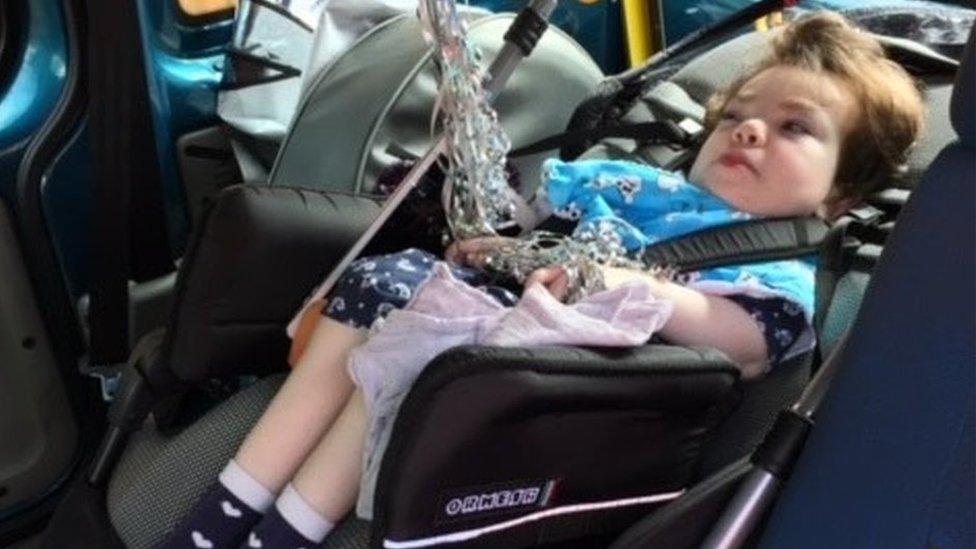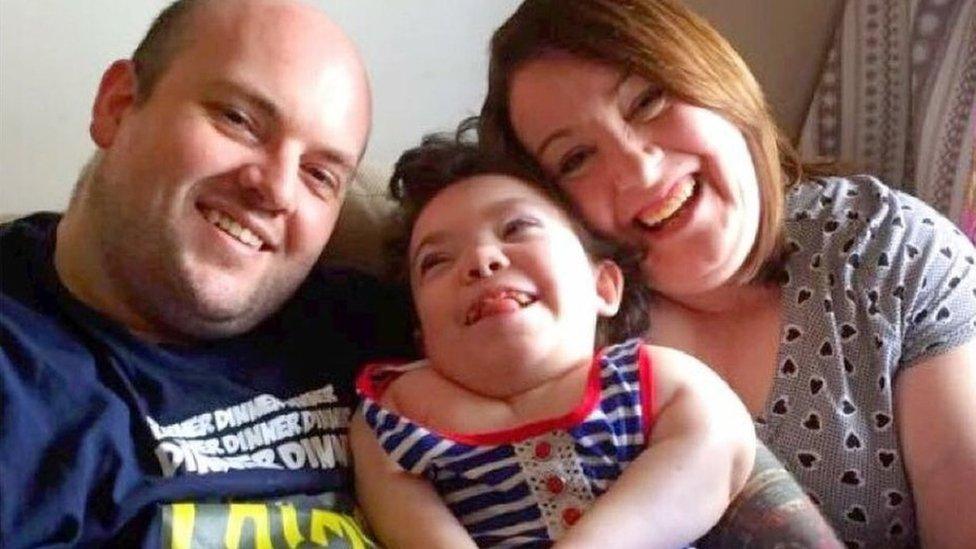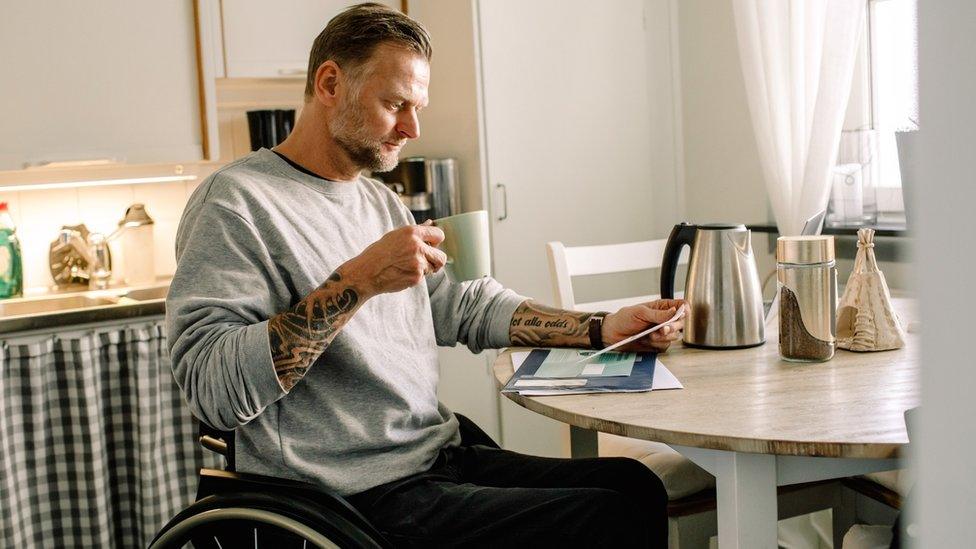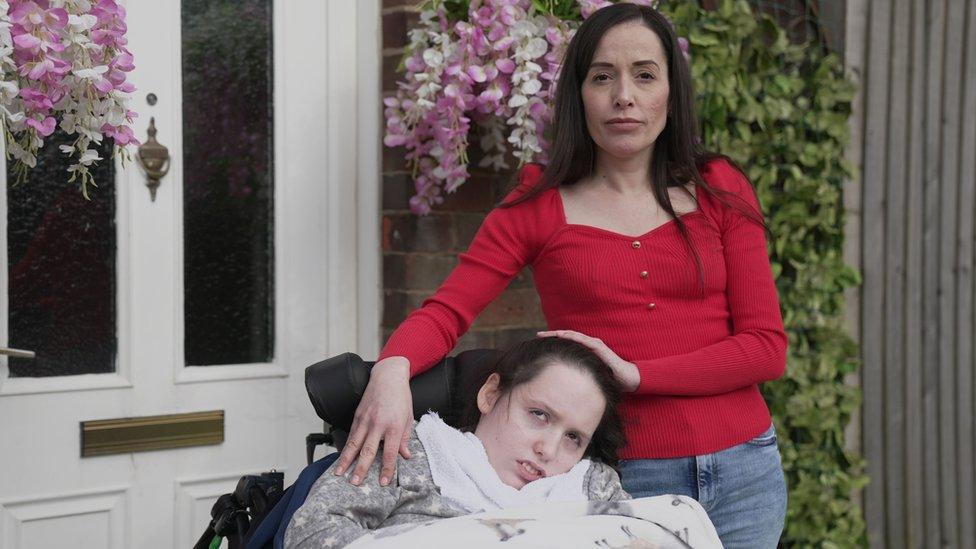Plea for more disability funding for Warwickshire teen's care
- Published

Callie Aspley needs round-the-clock care for a condition related to dwarfism
The parents of a severely disabled teenager want the government to increase funding for adults forced to quit their jobs to care for children.
Callie Aspley, 15, from Warwickshire, needs round-the-clock care for a condition related to dwarfism.
Her father has had to leave his job because they are struggling to find carers and their home energy costs to power vital equipment have soared.
The government said disability benefits were rising in line with inflation.
Callie, who is unable to breathe unaided, was born with RCDP, a life-limiting genetic condition linked to dwarfism.
She is on a ventilator in her bedroom at her home in Warton for 22 hours a day and fed via a pump. Most children with the condition do not live beyond the age of 10.
The family is effectively running a high-dependency unit away from hospital, but the cost of running the 15 pieces of equipment has seen their monthly energy costs soar.
The family receive carers allowance, working tax credits and disability allowance - they had a one-off cost of living payment of £150 but say it has not made their lives any easier.

Callie's father Dan left his job to care for his daughter
Her father Dan said: "Our current electricity bill is around £500 a month. We do get some support with the oxygen concentrator that works out at about £65 a month."
But their costs have gone up significantly in recent years as well having to care more for their daughter each day as a carer's shift cannot always be filled.
Mr Aspley quit his supermarket logistics job to be at his daughter's side day and night and her mother now works form home while waiting for a heart operation.
"Before we moved in, my mum was paying around £70 a month for her electricity.... now it's £500 a month and we're now looking at a possible increase again in a couple of months' time," he said.
"It's a real struggle. We are really getting tight now to afford paying this."
He said they had started turning the heating down but was worried he may lose his care team if it got too cold in their home.

Electricity bills for the family now top £500 a month
Although living with his mother means the family do not have a mortgage to pay, they still face rising food costs and are "very careful" about what food they buy and where from.
They have cut back on offering food for the carers when they arrive because "we simply can't afford to carry on being nice".
A government scheme called Watersafe that helps families in the same position pay their water bills before medical additional needs are factored in could also work for electricity bills, he said.
It has saved the family about £300 a year.
"There's no extra contingency for people that have extra equipment they keep in their homes... I think there's more a focus on helping everyone rather than those that really need it."
In a statement, a government spokesperson said: "We know families caring for children with disabilities face extra costs. That's why we're increasing disability benefits in line with inflation, making an extra £150 disability support payment as well as £900 cost of living help for those on means-tested benefits."

Follow BBC West Midlands on Facebook, external, Twitter, external and Instagram, external. Send your story ideas to: newsonline.westmidlands@bbc.co.uk
Related topics
- Published23 August 2022

- Published29 April 2022
